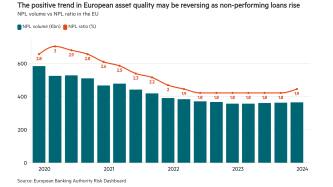A recent McKinsey & Company study estimated that the Islamic banking industry would grow at a rate of at least 20% between now and 2012 – at least twice as fast as the rate for conventional wholesale banking. The statistics are promising but they are not the only ones that have been making Islamic finance business attractive to banking centres. According to Dealogic, the combined volume of Islamic bonds and loans issuance rose to the highest-ever yearly total of $20.8bn in 2006, compared with $15.6bn in 2005 – a 33% annual increase.
In the battle for Islamic purses, London has to compete not only with New York, but also with Bahrain, Dubai, Riyadh, Singapore and Kuala Lumpur. It has the advantage of politics and geography over New York. The UK government has put itself firmly behind London’s ambitions, while the US administration has yet to do the same, and London is better positioned to serve the overlapping time zones in the Gulf and Far East. London also has the advantage of neutrality over the Gulf and Far Eastern states: interpretations of sharia law vary widely from region to region – London can serve all neutrally.











